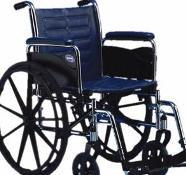 When you are given challenges in life, God wants you to meet these and rise higher. We all understand the philosophy but that does not make taking care of a disabled dependant and planning for their future any easier.
When you are given challenges in life, God wants you to meet these and rise higher. We all understand the philosophy but that does not make taking care of a disabled dependant and planning for their future any easier.
For families with disabled dependants, the challenge is two-fold. First, see if they can be trained so that they can join the mainstream. This can happen if the individual in question is not mentally-challenged and the problem is only, in terms of lack of vision or hearing.
The chances of rehabilitating such a person is much higher than in the case of one deaf-mute.
Hence, what is required to be done for these two different categories of people, is going to be different.
For the physically challenged: There are going to be special needs throughout the life for such individuals. For instance, a person with malformed limbs will have to move around in a wheelchair.
A specially modified vehicle is required for such a person to travel. Lots of these people also travel by public transport these days.
Apart from this, there can be a need for special tutoring if the person concerned is blind, deaf or spastic. There can be need for attendants if immediate family members are working. Any home they would move into may require modifying, depending on the person's incapabilities.
A family needs to plan for the future of such dependants, apart from their own retirement. This is a constant source of worry for the parents/guardians. Planning for the physically challenged is easier.
They would understand and be able to manage money. For this category, it is a good idea to build a supplementary stream of income, along the way, as their income may/may not be sufficient to meet their needs.
A good idea in such cases would be to build a corpus and ensure a certain sum of money comes to them regularly. This will ensure they feel secure and do not have to come to the parents for every need. For instance, a post office monthly income scheme (MIS) of Rs 6 lakh will give them Rs 4,000 every month, which will be in addition to what they are able to earn. The investment can also be in regular dividend-paying bank fixed deposits, monthly income plans (MIPs) and the like.
Another idea would be to invest in stocks or mutual funds (with a dividend payout option), where the disabled get to make some money from time to time. This is, however, not a dependable regular source. Corpus accumulation for their future can be through public provident fund, fixed deposits, shares, mutual fund units.
Invest in annuity products for such family members, which starts when the parents of such individuals retire. It will be a good idea to invest in two-three annuity plans, which vest three to five years apart from each other, as the payouts start adding up over time, somewhat nullifying the effect of inflation.
For instance, the first annuity of Rs 3,000 a month starts 10 years from now. Another annuity for an additional Rs 2,000 monthly can start three years from then, partly compensating for inflation. One more can be started after another three years. The idea of staggering the investment is that the longer the contribution, the bigger& the compounding effect and the higher the payouts.
Invest in special life insurance products like Jeevan Aadhar/Vishwas, which have the option of receiving a portion of the corpus as a pension, when the parent(s) is no more.
For the mentally challenged: This is far more trickier, as the dependant would not be in a position to manage the money. In this case, corpus accumulation that will last the entire lifetime of the disabled dependant is an important goal, as the possibility of the dependant earning a living is minimum. The products invested in should be fairly simple to manage and administer. Even if the parents are not around, it should be easy for someone else to understand the products and investments.
For this category, it could be through annuities or other regular income products, which could be useful, especially after the parent(s). Annuities are recommended, as these require very little intervention.
Also, trusts can be formed for such dependants, with a close relative/ friend administering the investments. The other option is to admit such dependants in institutions which will take good care of them for the lifetime, in the absence of parents.
A one-time lump sum or a lump sum plus a monthly payment is required by such institutions. Both profit and non-profit organisations operate in this space.
Tax benefits: There are some income tax benefits for those with handicapped dependants. For expenditure on a handicapped dependant, including payment to specified schemes for their maintenance, the government gives a Rs 50,000 deduction. If the dependants have severe disability - blindness, mental retardation and so on - the deduction allowed would be Rs 1 lakh.
These deductions are allowed under Section 80DD of the Income Tax Act.
The writer is a certified financial planner.






